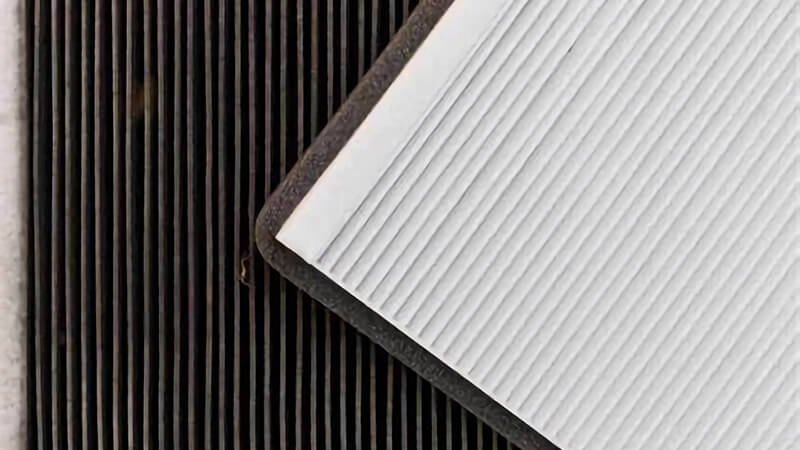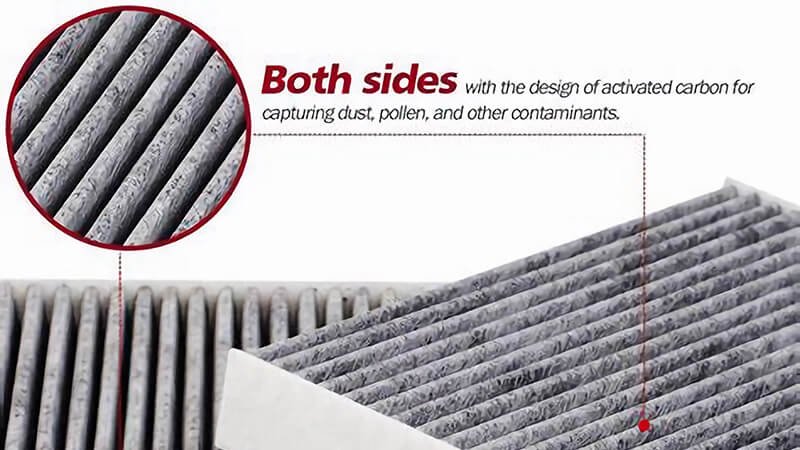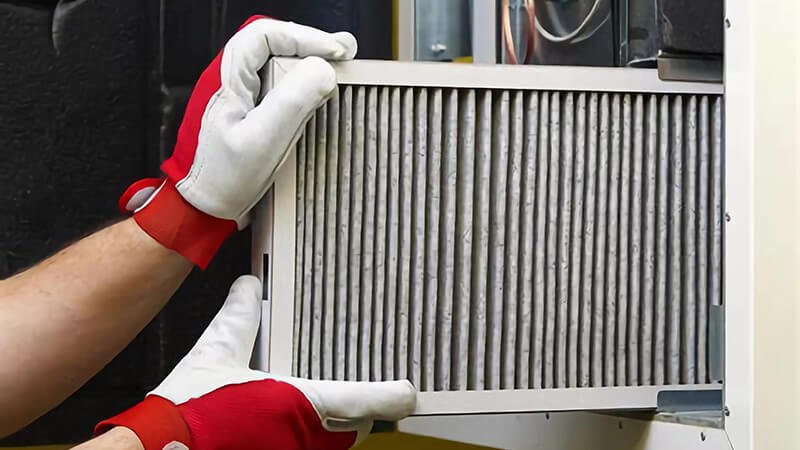When I first got into automotive parts manufacturing, I thought cleaning filters was a clever way to save costs. That illusion didn’t last long—especially after a client’s returns skyrocketed due to reused filters.
No, you shouldn't clean and reuse your HVAC filter—replacing it ensures peak engine performance, better airflow, and fewer warranty claims.
I learned this lesson the hard way. One of our clients, a distributor for mid-size fleets, kept reusing filters to cut corners. It cost them more in the long run—both in engine wear and customer trust. Switching to regular replacements using Runex Auto filters turned the numbers around fast.

What happens if I never change my AC filter?
Most people ignore their filters until there's a problem. But the damage is already done by then—engines lose power, fuel economy drops, and parts overheat. We’ve seen this too often.
If you never change your AC filter, debris builds up, restricting airflow and reducing fuel efficiency, while also risking long-term engine damage.
The invisible damage adds up fast
When your car breathes through a clogged filter1, it suffocates. Here’s what that really means:
Engine strain and lower mileage
A dirty filter forces your engine to work harder. That uses more fuel and creates extra wear on components like spark plugs and sensors.
Cabin discomfort and AC inefficiency
If you're reusing HVAC cabin filters, dust and pollutants recirculate. That worsens air quality and puts pressure on the AC unit.
Long-term system failure
Contaminants that bypass worn filters get into the intake manifold. Over time, this can lead to expensive repairs—especially for diesel vehicles operating in dusty regions.
| Symptom | Root Cause | Preventable by Replacement? |
|---|---|---|
| Decreased engine power | Clogged engine air filter | ✅ Yes |
| Foggy windshield interior | Moldy cabin air filter2 | ✅ Yes |
| Fuel consumption increase | Poor airflow to combustion | ✅ Yes |
| Noisy AC unit | Dirty cabin filter | ✅ Yes |

Can HVAC filters be cleaned and reused?
It’s a question we get all the time from procurement managers trying to stretch a budget. We’ve tested this internally with several materials—and the results speak for themselves.
Technically, some filters can be cleaned—but doing so compromises filtration efficiency, damages the filter media, and leads to inconsistent performance.
Why cleaning fails, even when it looks fine
Filter media loses integrity
Runex Auto filters are made with multi-layer synthetic media. When washed or blown with compressed air, the fine structure collapses, reducing its ability to trap microscopic particles.
Uneven filtration = engine risk
Even if the filter "looks" clean after washing, airflow channels are never uniform. This allows dust to bypass and directly reach sensitive engine components.
B2B realities: warranty and reputation
In B2C, a failed filter means one unhappy driver. In B2B, it could mean hundreds of customer complaints and strained distribution relationships. Our clients who switched to routine replacements reported fewer downtime issues and stronger brand recall from end users.
| Factor | Washed Filter | New Runex Filter3 |
|---|---|---|
| Filtration Efficiency | 40-60% | 98% |
| Airflow Consistency | Low | High |
| Durability After Reuse | Very Low | High |
| Customer Satisfaction | ❌ | ✅ |

Is it better to have a dirty air filter or no air filter?
Believe it or not, some drivers actually run vehicles without filters at all, thinking they’re getting “more power.” What they’re getting is more engine damage.
Running a car without an air filter is worse than using a dirty one—unfiltered particles cause irreversible engine damage and void warranties.
The lesser of two evils? Not really.
No filter = no protection
Even a clogged filter still traps some dirt. No filter means rocks, bugs, sand, and dust go directly into your engine. For fleet vehicles, that’s a guaranteed maintenance nightmare.
Immediate vs. long-term damage
While a dirty filter might reduce performance over time, a missing filter can destroy the engine in a matter of days—especially in off-road or urban environments.
Why we built Runex filters the way we did
We engineered our air filters with a layered gradient to maintain airflow even when partially clogged. That means drivers get longer use without risking system integrity. Removing the filter4 entirely strips away that last line of defense.
| Scenario | Engine Safety | Performance Impact | Risk Level |
|---|---|---|---|
| Clean Filter | ✅ High | 🔼 Optimal | Low |
| Dirty Filter | ⚠️ Moderate | 🔽 Reduced | Medium |
| No Filter | ❌ None | ❓ Unstable | High |

What happens if I don't clean my air filter?
Sometimes “doing nothing” seems easier than cleaning or replacing. But this passive choice has an active cost. Especially for HVAC cabin filters, neglect leads to reduced comfort and even health risks.
Neglecting to clean or replace air filters causes reduced HVAC efficiency, higher energy use, poor air quality, and possible respiratory issues for drivers.
Filters don't just protect the car—they protect people
Dirty air = tired drivers
When cabin filters5 get clogged, the air becomes stuffy, and humidity builds up inside the car. Long-haul drivers report fatigue, sore throats, and even headaches due to poor ventilation.
More pressure on AC systems
A choked filter increases resistance, making the AC compressor work harder. This often leads to overheating and premature failure, especially in tropical climates or summer peaks.
You breathe what you don’t replace
We design Runex cabin filters6 with electrostatic layers that trap pollen, dust, and bacteria. If ignored, those same particles collect and recirculate—right into your lungs.
| Filter Type | Not Cleaning Results | Health or Cost Impact |
|---|---|---|
| Engine Air Filter | Reduced combustion efficiency | More fuel + repairs |
| Cabin Air Filter | Increased dust, allergens, and mold | Respiratory irritation |
| HVAC Air Filter | System strain, musty smells, weak AC | Higher energy + maintenance |

Conclusion
Cleaning might seem like a quick fix, but in the world of automotive parts—especially for air filters7—it’s a false economy. My experiences with clients who insisted on reusing filters taught me that consistency and reliability matter more. At Runex Auto, we build filters that are meant to be replaced, not washed. They’re designed for long-term engine health, driver comfort, and business peace of mind. If you're serious about performance, choose scheduled replacements—because your filter is either protecting your engine or it's putting it at risk.
-
Understanding the impact of a clogged filter can help you maintain your vehicle's performance and longevity. ↩
-
Regular replacement of your cabin air filter is crucial for ensuring clean air inside your vehicle and optimal AC performance. ↩
-
Discover why new filters outperform washed ones in efficiency, durability, and customer satisfaction, ensuring better engine protection and business reputation. ↩
-
Discover how air filters protect your engine from debris and ensure optimal performance, preventing costly damage and maintenance issues. ↩
-
Discover how regular replacement of cabin filters can enhance air quality and driver comfort. ↩
-
Learn about the unique features of Runex cabin filters that help trap harmful particles and improve health. ↩
-
Know the best auto air filter frpm Runex. ↩













